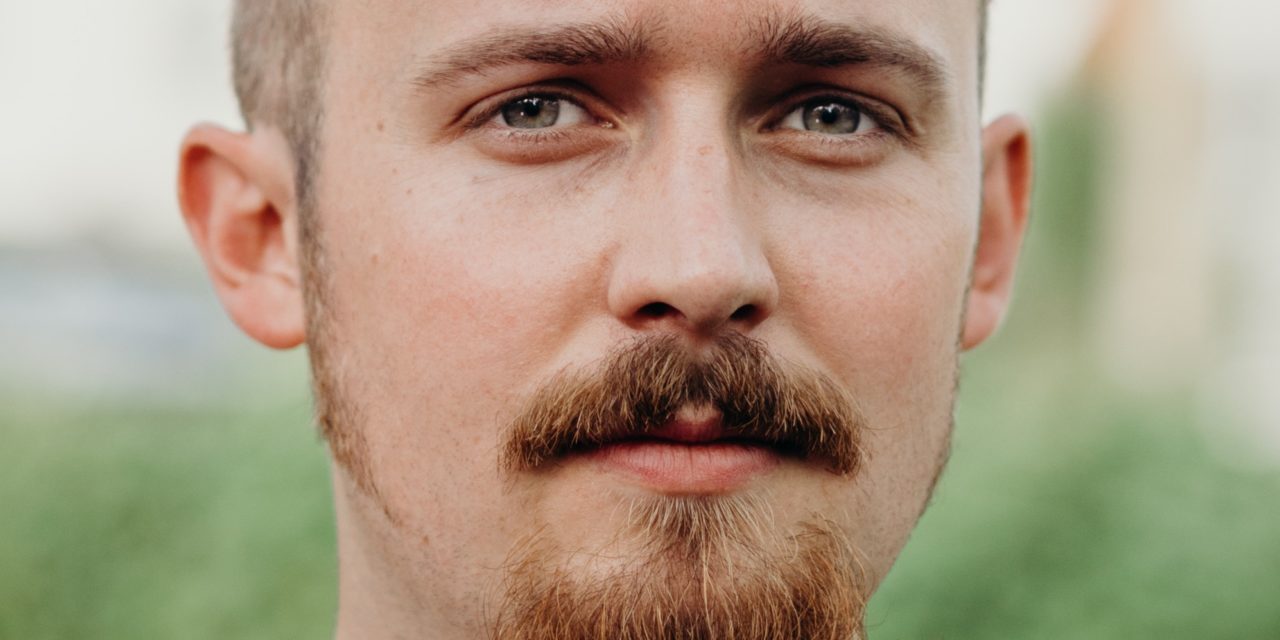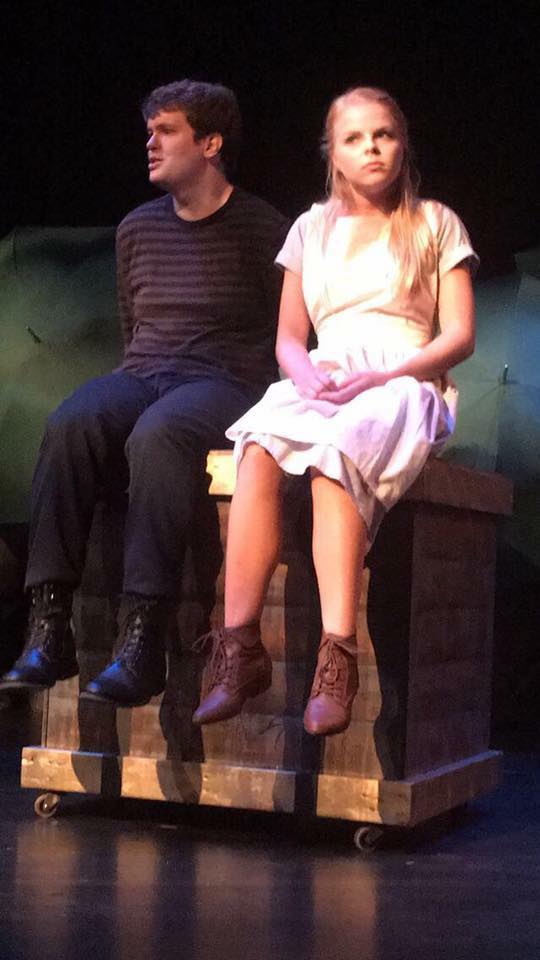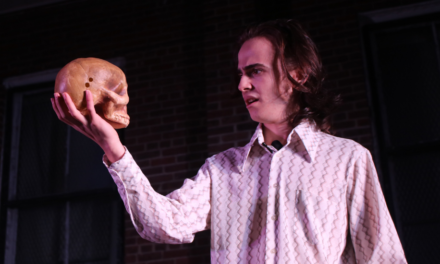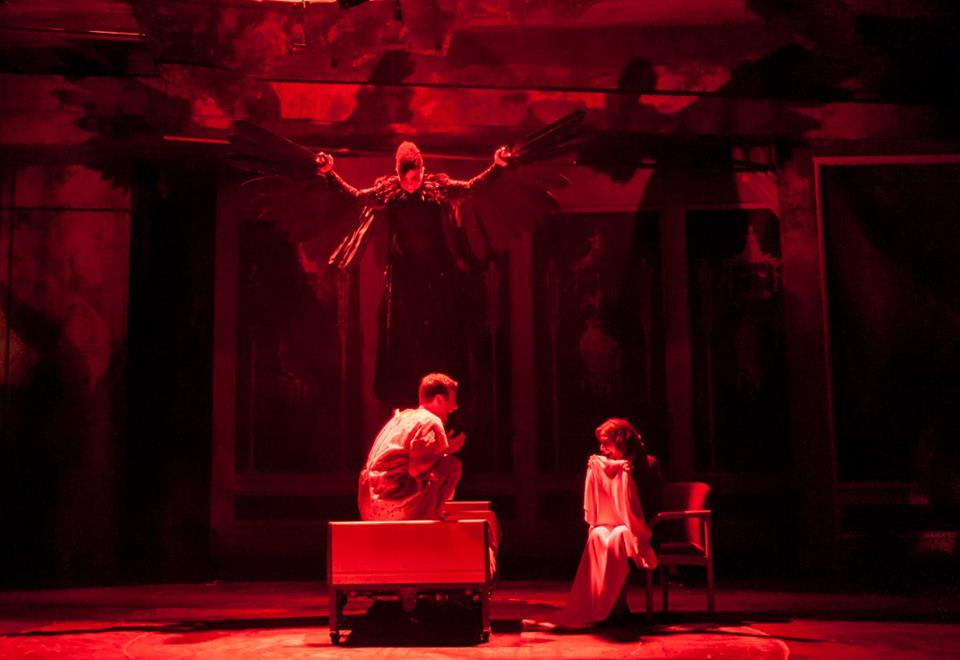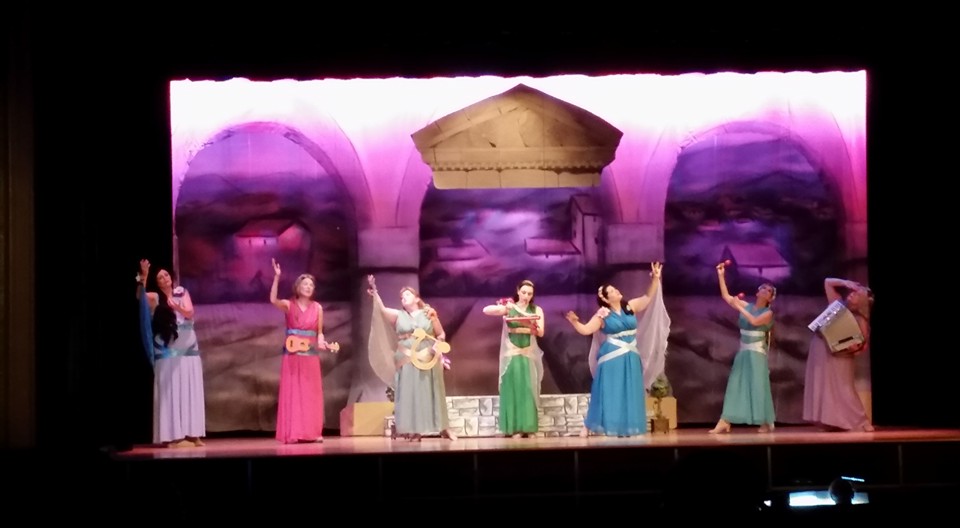Interview by Keith Waits
Entire contents are copyright © 2020 by Keith Waits. All rights reserved.
Jesse Alford is one of the busiest theatre artists in Louisville, working as a freelance Lighting Designer with companies including Stage One Family Theatre, Theatre [502], Louisville Ballet, Kentucky Opera, and Circus Flora.
He is also Head Coach for My Nose Turns Red Youth Circus, and serves as Board President of the American Youth Circus Organization and the American Circus Educators. He grew up in the Great Y Circus in Redlands, CA, and received a BA in Theatre Arts from Washington State University.
- Were you working on a show when the theatres were closed?
Yes, at Theatre [502]. We were midway through tech week for Gasping Whiteness, a play, workshop, and anti-racist fundraiser, when we made the decision to postpone the production. It felt like we were one of the first productions to close, so it was a scary decision.
- What is the next show you are/were scheduled to do?
I was in the middle of six weeks in a row of tech weeks, so I was supposed to open Gasping Whiteness on March 13, followed by Dragons Love Tacos with StageOne on March 20th, Robin Hood with the Kentucky Opera on March 27, and Kentucky Vol. 1 with the Louisville Ballet on April 3rd. So I went from full steam ahead to full-stop quarantine. At the moment, all of those have been postponed instead of canceled, so hopefully, those all still happen. Though the news moves so quickly these days, I feel the need to timestamp that answer (7:43 pm, March 22, 2020).
- Do you have a non-theatre job?
My only non-lighting work is as a circus coach. I am the Head Coach for My Nose Turns Red Youth Circus, in Cincinnati. I teach there most weekends, and for a few weeks in the summer. When I have time, I also teach at Suspend, here in Louisville.
- Which comes first in your heart, circus or theatre?
Hmm. Circus has been a part of my life for far longer than theatre, so my quick answer is definitely circus. But the more that I work in so many different branches of performing arts, I see them more as just different toolsets for communication and storytelling. So it’s less of a hard-line, especially as there is more and more genre-bending work being created.
- How would you describe how the circus has changed in American culture?
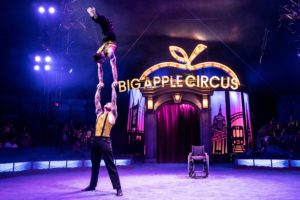
Photo: Matthew Murphy
I have friends who have written whole books on this, so I’ll do my best to fit my thoughts into a nutshell. I think circus has shifted away from an art form that was focused on spectacle and wonder and has become an art form that specializes in inspiration, and in pushing the boundaries of the human experience. Maybe another way of saying that is that I think circus today celebrates and explores what all of humankind is capable of, and the circus of yesterday celebrated what a few individuals were capable of. Phrasing that thought so bluntly is sure to upset a few folks in the circus industry, but my perspective is of much of the circus industry as a whole, which includes circus education. Today, it is much more likely that an audience member sees a performance and thinks about how maybe they could do that someday since they’ve taken a class at a place like Suspend. That opportunity didn’t exist not too long ago.
- How did you come to specialize in lighting design?
I had the best professor anyone could ask for. Ben Gonzales welcomed me in, and taught me everything he knew. I think that if he had taught costume design instead of lighting, I could just as easily have ended up as a costume designer (or anything else in the theatre).
- What show are you longing to do?
I don’t think I have a single answer to this. So much of what I enjoy about working on a show comes from the other collaborators, and from the moment in time that the thing is created. I’d much rather work on a show I’ve never heard of, and with a dream team of collaborators, instead of on a dream show just for the sake of that show.
- Besides Louisville, what other places have you worked?
As far as lighting work goes, I’ve also worked in St. Louis, Ithaca, NY, and New York City. I’m really fortunate to have as much work as I do in Louisville.
- What, if anything, is different about working in Louisville?
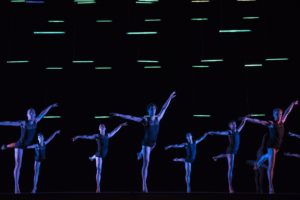
I owe my entire freelance career to the network of theatre people here in Louisville (and to Amy Attaway, but that’s a separate story), and I think that network is what sets this city apart. The friendships between companies are genuine because this community just wants to make good, relevant, art. That’s not true a lot of places.
Brandon Ragland’s Force Flux from Louisville Ballet. Photo: Sam English
- You seem to work a lot. How many shows do you do in a year?
In one year, I work on about 25 shows. So on average, I have an opening night every other week. Except for right now of course, since we’re all stuck at home figuring out how to make art on Instagram live.
- What music have you been listening to?
I recently discovered Too Many Zooz, which has been pretty great. Recently though, Andrew Bird is probably most likely to be last played on Spotify.
- What book is on your bedside table?
Ha! I don’t have a very literary answer to this. It’s a tossup between the latest graphic novel from The Adventure Zone, or the latest issue of Zymurgy, the magazine from the American Homebrewers Association. The stack of books I’m meaning to read is massive, but my eyes are bigger than my stomach.
Keith Waits is a native of Louisville who works at Louisville Visual Art during the days, including being the host of LVA’s Artebella On The Radio on WXOX 97.1 FM / ARTxFM.com, but spends most of his evenings indulging his taste for theatre, music and visual arts. His work has appeared in LEO Weekly, Pure Uncut Candy, TheatreLouisville, and Louisville Mojo. He is now Managing Editor for Arts-Louisville.com.
2020 Arts-Louisville/Broadway World Theatre Award Sponsorship provided by


